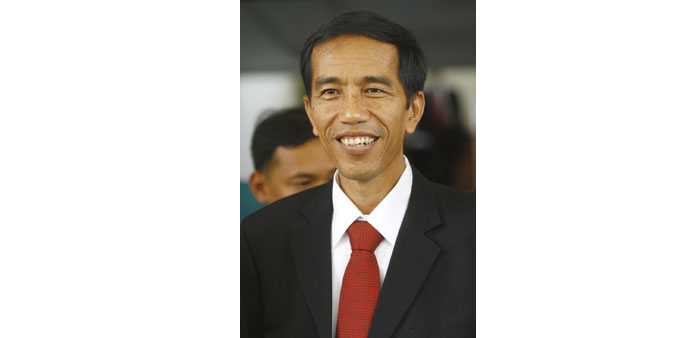By Arno Maierbrugger
Indonesia, the world’s most populous Muslim country, could regain its title as Southeast Asia’s investment hotspot after people chose the liberal, business-oriented and reform-minded Jakarta governor, Joko Widodo, as their next president. In one of his first statements after elections, Widodo said his goal was to make Indonesia’s economy grow at a rate that the country has not experienced in over three decades since Asia’s financial crisis in the 1990s, which means he targets an annual GDP growth rate of more than 7%. He also said he will not work with the usual cronies in the cabinet but select “appropriate” ministers for key resorts of finance, trade and foreign relations to put the country forward. Indonesia will open up far more to investments in infrastructure, manufacturing and human capital development, he added, to address the most urgent shortcomings the nation — and will also change the prevailing system of a corrupt bureaucracy and the “economic nationalism” that emerged under the rule of current president Susilo Bambang Yudhoyono over the past years. This has led to foreign investors, especially in the mining sector, becoming disgruntled and commodity exports shrinking. Widodo, inheriting a $900bn economy, will have to create clear legal frameworks in these crucial economic sectors to help the nation regain its title as a regional economic powerhouse in its quest to become one of the world’s top 15 economies in the coming decade. Widodo is expected to be inaugurated on October 20, 2014, when Yudhoyono’s second term ends. For the GCC, a region increasingly looking eastward to secure alternative trade and investment relations, Indonesia’s new presidency with its investment-friendly climate can mean big opportunities. Bilateral trade between the GCC and Indonesia was well above $10bn annually in the past years, whereby some three quarters of Indonesia’s imports from the GCC are oil and gas, and Indonesia delivers palm oil, wood and paper, electronic equipment, rubber, textiles and vehicles in turn. The nation has a lot of backlog demand in the fields of infrastructure, energy generation and distribution, building of industrial zones with roads, airports and ports, manufacturing facilities, food security, education, as well as and banking and finance, particularly Islamic finance. The initial conditions — economy-wise — seem to be favourable. Since Widodo’s election win, Indonesian stocks have advanced and the country’s ailing currency, the rupiah, has strengthened. Most analysts said they were confident in what they heard from Widodo, but also mentioned that the huge country with is 247mn population, its uneven distribution of wealth, its core economy — apart from mining — being centred basically on one island, Java, its social and religious diversity, its large number of poor and low-income families, its inadequately educated workforce and its large number of land disputes with farmers and the indigenous population on more remote islands — has enough issues to be worked on. Adding to that, Widodo will face the difficult task to reduce public subsidies on fuel and electricity, a highly sensitive socio-political matter in Indonesia. However, Widodo said he is confident to reach a GDP growth above 7% for Indonesia in no more than two years, a statement symbolic for his preference of action over talk, probably an attitude that gained him a fair share of his votes.
Bangkok

